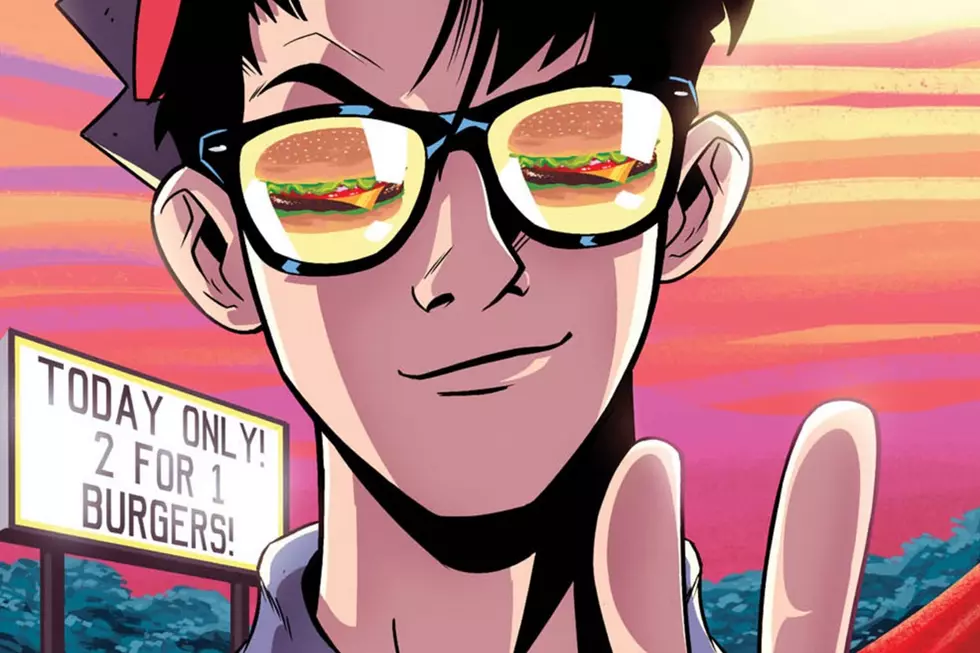
‘Black Comix': Gateway to the Black Indies

I've read a couple books about black comics, and written probably a book's worth of information on the subject myself. When "Black Comix" was announced by Mark Batty Publisher, I was instantly interested. I eat this stuff up.
"Black Comix" comes out soon, and now that I've read it, it's safe to say that it's nothing like I expected. I knew the authors, John Jennings and Damian Duffy by reputation alone, not having read any of their work before I picked up the book. I'd also heard of several of the books and creators in the book, but the actual details of "Black Comix," like whether it would be a series of reviews or a history of black people and comics, eluded me.
If "Black Comix" isn't a historical document, what is it? It turns out that the word "comix" in "Black Comix" is there for a very specific reason. "Black Comix" is a survey of black creators and their comics. Its subtitle, "African American Independent Comics, Art and Culture," is a fitting one. "Black Comix" pulls creators and books from a fairly recent time period while almost entirely eschewing works from the Marvel/DC Comics side of the street.
 "Black Comix" covers forty-nine people and provides a solid primer on the names you need to know when it comes to black-owned indie comics. If you flick through the book, you'll see that you can't pigeonhole black comix, the works range from superheroic fantasies to hard sci-fi to gag-based newspaper-style comedy, and the variety of content is really where "Black Comix" shines.
"Black Comix" covers forty-nine people and provides a solid primer on the names you need to know when it comes to black-owned indie comics. If you flick through the book, you'll see that you can't pigeonhole black comix, the works range from superheroic fantasies to hard sci-fi to gag-based newspaper-style comedy, and the variety of content is really where "Black Comix" shines.
While some of the more superheroic work features a certain amount of surface similarity, that's where anything even approaching a consensus stops. Keith Knight's clean and cartoony style sits right next to MShindo Kuumba I's very clean and painterly style. Leilani Hickerson's art style has a very all-ages appeal, while N. Steven Harris's approach is more realistic and big on little detailed. Black comix, like all indie comix, feature a multitude of styles and looks.
There is also an interesting approach to chronology in the book. Up and comers like Afua Richardson are displayed alongside veterans like Larry Stroman, and each artist gets around a two-page spread, though sometimes more, to show off. A small credits box, big enough for just a few sentences, provides a little bit of context and history for the artists, but the work tends to speak for itself. Due to the way the book is structured, there's no readily apparent history of black comix in the text, which seems like an odd choice for a book like this.
 Balancing out the scarce information on the artists involved are fifteen interviews and essays about black comix that provide some much-needed context for a few of the projects, though they tend to be short. They cover a lot of ground, jumping into subjects like the manga influence in black comix, humor and satire, and even coverage of the Glyphs Comics Awards and the East Coast Black Age of Comics Convention. Their brief length is a hindrance, however, as they only get a chance to dip their toe into the subject before their time is up.
Balancing out the scarce information on the artists involved are fifteen interviews and essays about black comix that provide some much-needed context for a few of the projects, though they tend to be short. They cover a lot of ground, jumping into subjects like the manga influence in black comix, humor and satire, and even coverage of the Glyphs Comics Awards and the East Coast Black Age of Comics Convention. Their brief length is a hindrance, however, as they only get a chance to dip their toe into the subject before their time is up.
As a primer for the world of indie comics by black creators, "Black Comix" succeeds. There are enough artists with varied enough styles that anyone can find something to like. It's lovely that a book like this exists, and while I do wish it were a little more detailed or had some sort of timeline detailing the history and growth of black comix, this is a worthy first stepping stone on the way to discovering some great black comix.
More From ComicsAlliance
![Everything We Can’t Wait To See At San Diego Comic Con, Part Two: Saturday & Sunday [SDCC 2016]](http://townsquare.media/site/622/files/2016/07/SDCC-Sat1.jpg?w=980&q=75)








